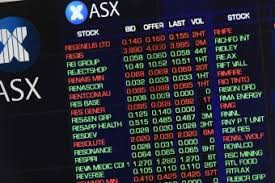Weekly market update - 26th of November 2018
Written and accurate as at: Nov 26, 2018 Current Stats & Facts

The local market shed -0.3% in a week replete with volatile macroeconomic factors. Ongoing uncertainty over a soft patch in the Chinese economy and the outlook for trade with the US continues to weigh on cyclicals and on the miners in particular. This, in combination with a continued slump in the oil price, saw the local resource Index fall -2.7%. Defensives such as Health Care and listed property tended to outperform. Meanwhile, Financials enjoyed something of a relief rally reflecting the lack of any new controversy from the latest round of Royal Commission hearings. The Financials Index was up 1.7% and the banks up between 3.0% (National Australia Bank) and 3.9% (ANZ).
The price of Brent Crude oil slid more than 10% over the week and is now below US$60 a barrel, down from over US$80 at the start of October. This is in stark contrast to the move towards US $100 that many were predicting as US sanctions on Iranian oil production came into effect. The issue here is that OPEC have been pumping greater volumes to cover the expected supply shortfall as Iranian barrels were withdrawn; however when the US reinstated sanctions, it exempted some of the world’s largest oil importers (e.g. China, India, and Japan) allowing them to continue buying Iranian oil. This has resulted in a supply glut and the price response.
There is a view that this move reflects the Trump administration’s attempt to offset Fed tightening, although the respite it provides for US consumers is likely to be short-lived, as a lower oil price may give the Fed further leeway to bring its benchmark rate still closer to what they perceive to be the natural rate. Regardless, at this point the effects of the slump are cascading into other parts of the market and the economy. The Australian energy sector continues to underperform, with Woodside Pertoleum (WPL) down 2.8%, and Santos (STO) -6.7% for the week. There is a sense that as investors cut losing positions in oil, this is feeding through to weaker sentiment on cyclicals in general, even as the underlying economic situation remains reasonable.
Elsewhere in the Energy sector, recent listing Viva Energy (VEA, -7.6%), which operates Australia’s Shell-branded petrol stations, downgraded its FY18 guidance on the back of weaker than expected refining margins. High petrol prices have had an a negative impact on petrol volumes in recent months, which should rebound as the oil price drags retail fuel prices down.
Oil is also a key input cost for other resources. The dramatic fall provides a short-term tailwind for the sector, but ultimately it drives a lower break-even point, which brings more marginal supply on-line and results in lower prices throughout the resource complex. When coupled with the concerns over China mentioned above, this continues to weigh on miners, with BHP Billiton (BHP) down 3.2% and Rio Tinto (RIO) -2.5%. Some analysts predict that the Chinese economy is patchy in the near term with property construction holding up but with signs that demand is softer and the Government is reluctant to stimulate the sector. Infrastructure remains reasonable but is not enough to offset broader weakness; it is consumer demand which must be invigorated and where the Government is focusing its efforts. There are tools to achieve this; however, until they gain traction the economy is likely to remain soft which may weigh on sentiment around the resource sector, even as much of it remains cum-upgrade on commodity prices and strong cash flow generation supports high yields.
NAB division CYB Group (CYB), which owns regional UK bank brands such as Clydesdale Bank, fell 24.2% last week and was among the worst performers. The stock has been sliding in recent months as the uncertainty around Brexit negotiations flared. It has recently completed the acquisition of Virgin Money which, coupled the latter’s brand and national reach with CYB’s advantage in lower funding costs, was expected to deliver decent earnings accretion. However, its result released last week revealed that pressure on near term margins, mainly from the Virgin Money book, is far higher than anyone expected or had been flagged during the acquisition process. The negative reaction was compounded by the fact that management did not offer further detail on the strategy to extract synergies and costs savings from the deal, planning to wait for an investor day next year.
Many growth stocks continued to slide, with Afterpay (APT, -12.4%), Xero (XRO, -11.2%), Altium (ALU, -11.1%) and Link (LNK, -10.1%) among the week’s poorest performers. There was some divergence here in that the health care stocks such as CSL (CSL, -0.7%), ResMed (RMD, +0.7%) and Cochlear (COH, +4.2%) all held up relatively well. This is possibly in response to the Democrats’ success in the US mid-term elections, which render changes in US health care policy less likely, maintaining the status quo. Carsales.com (CAR, +4.9%) also bucked the trend of weaker growth stocks, buoyed by the news that New Zealand-listed Trade Me had attracted a buyout bid and the notion that, as a highly cash-generative business, CAR might also attract some takeover interest.










